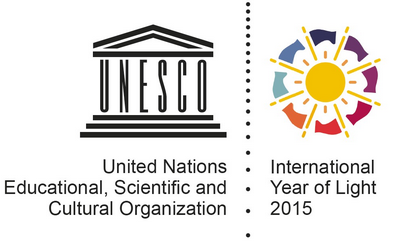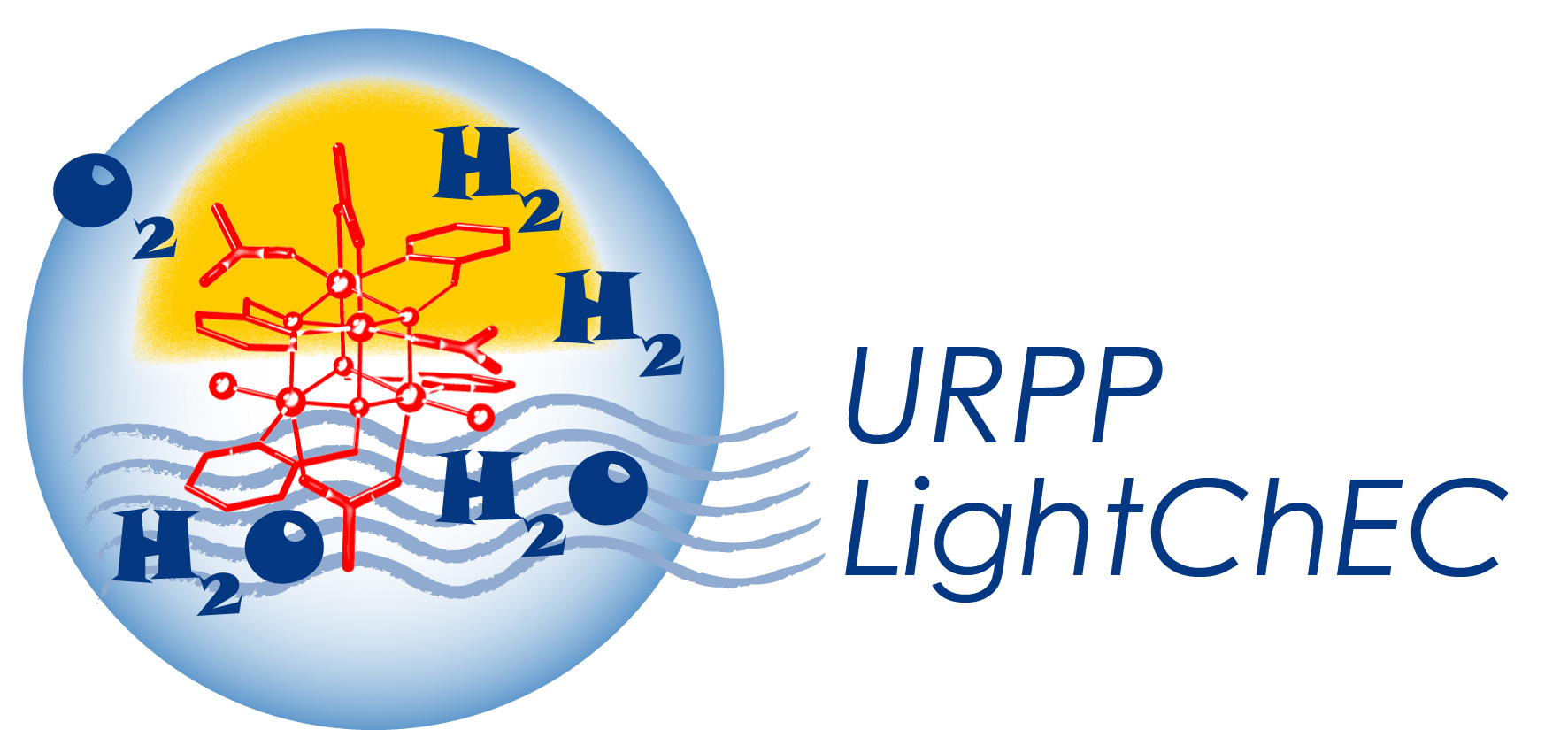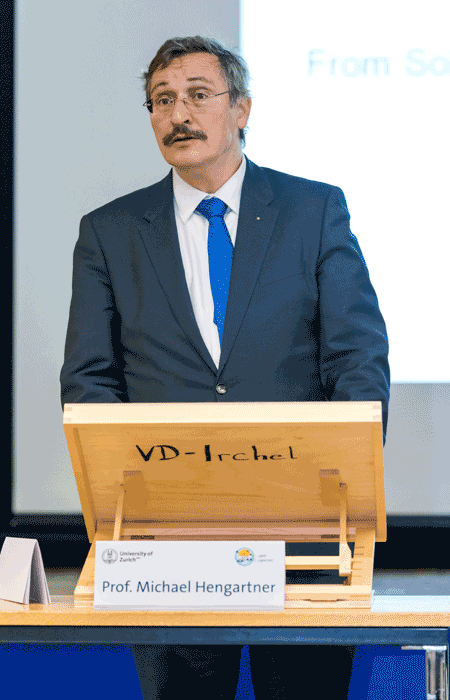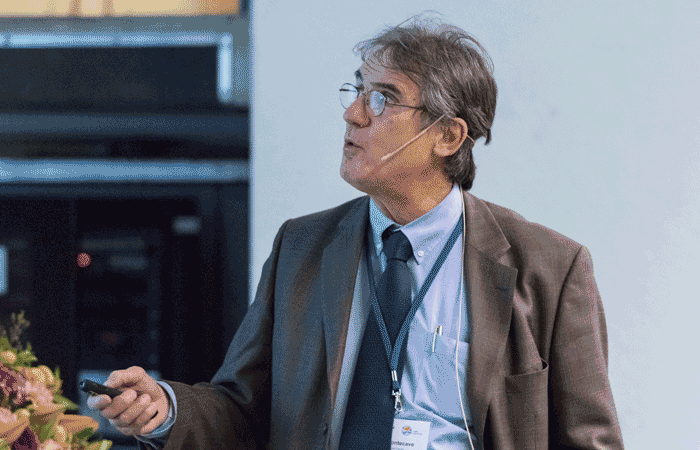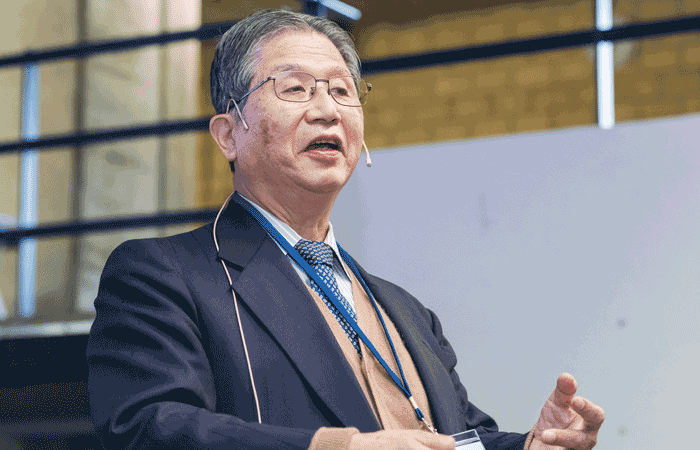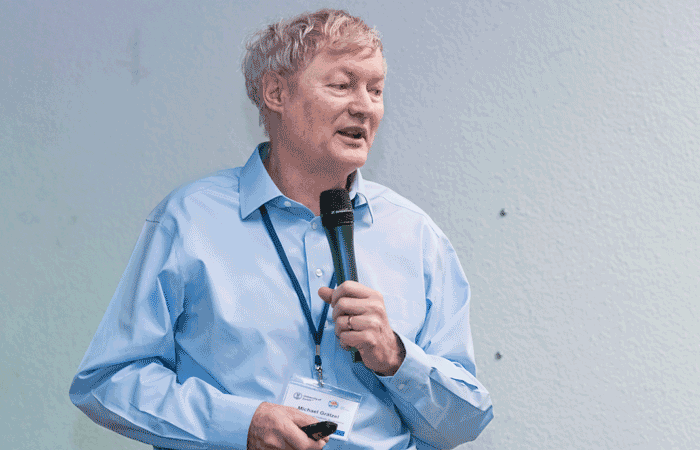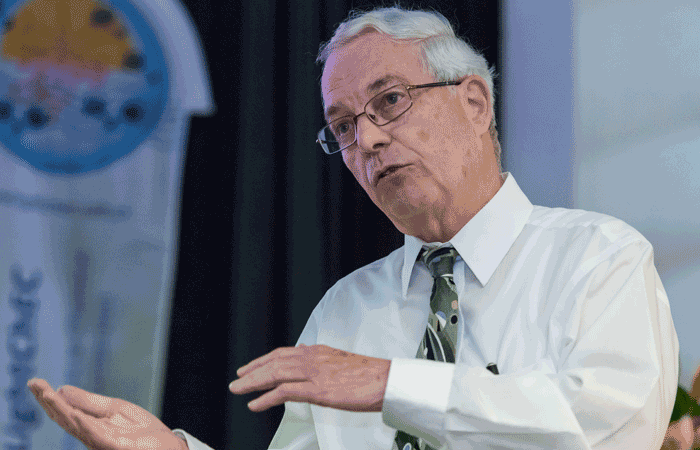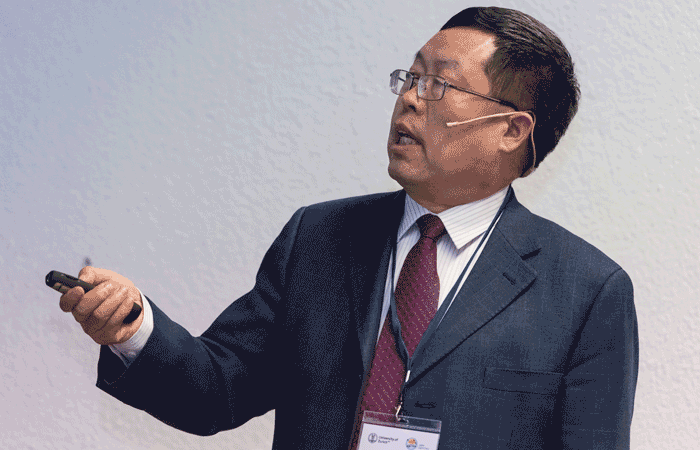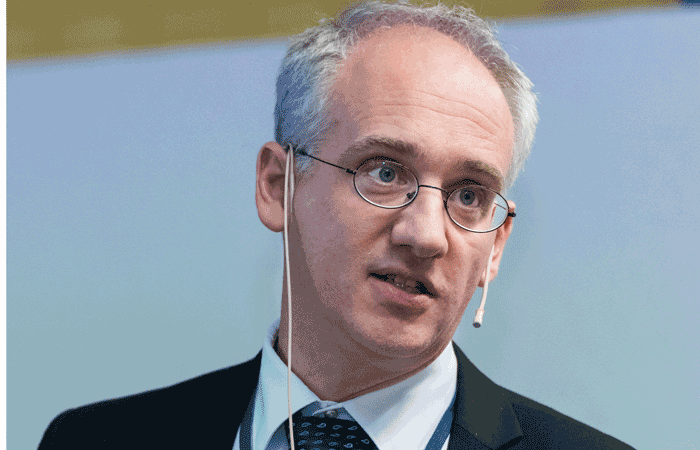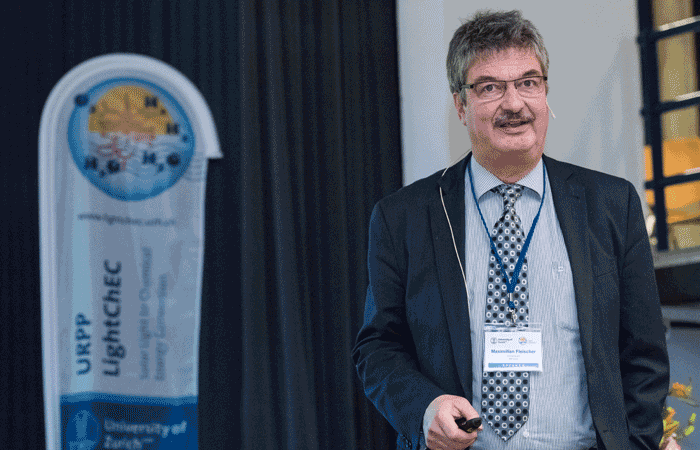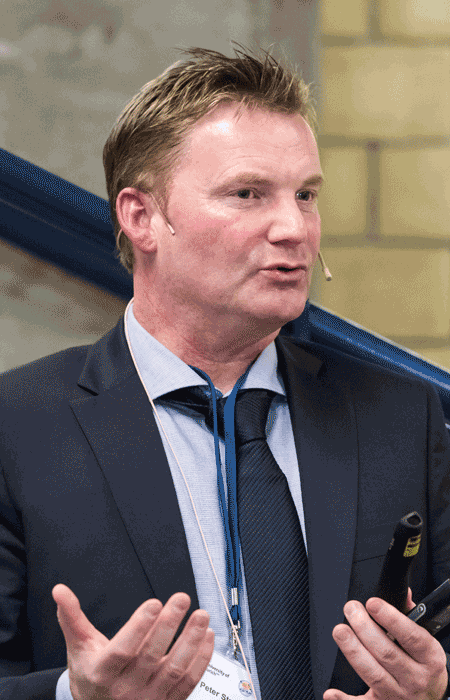Symposium 2015
27 November 2015, Campus Irchel, University of Zürich, Switzerland
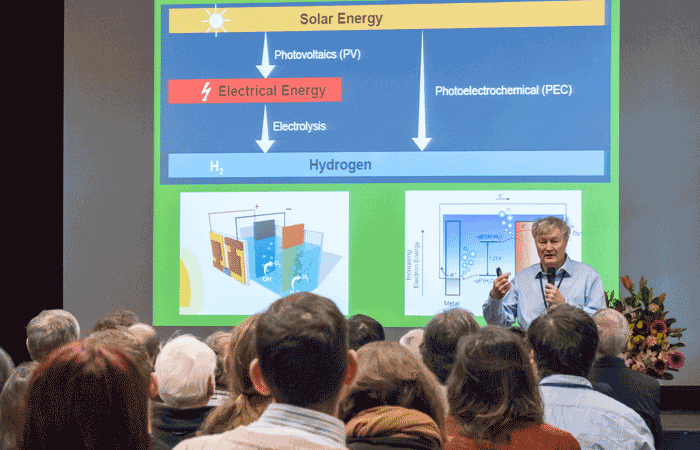
Downloads
Speakers
Marc Fontecave
Marc Fontecave is Professor at the Collège de France in Paris and directs the Laboratory of Chemistry of biological processes. His research activity is aimed at understanding the molecular structure and the chemical reactivity of complex redox biological systems containing metal ions. The biological systems under investigation illustrate various facets of bioinorganic chemistry and biocatalysis. The bioinspired chemical systems are used to understand key biological reactions and to discover new catalysts useful for synthetic reactions. For example, for the preparation and evaluation of novel bioinspired (photo)catalysts based on non noble metals for hydrogen production and oxidation as well as for carbon dioxide reduction and their development in fuel cells and (photo)electrolyzers.
Akira Fujishima
Akira Fujishima is president of the Tokyo University of Science (TUS). President Fujishima is known for significant contributions to the discovery and research of photo catalytic and superhydrophilic properties of titanium dioxide (TiO2). He discovered the phenomenon of photocatalytic water decomposition (Honda-Fujishima effect). President Fujishima has been the recipient of many prestigious awards and honors.
Michael Grätzel
Michael Grätzel is Professor at the Ecole Polytechnique de Lausanne, and directs the Laboratory of Photonics and Interfaces. He pioneered studies of mesoscopic materials and their use in energy conversion systems, in particular photovoltaic cells and photo-electrochemical devices for solar generation of chemical fuels as well as lithium ions batteries. He discovered a new type of solar cell based on sensitized nanocrystaline oxide junctions, which has engendered perovskite photovoltaics, one of the most exciting developments in solar energy conversion.
Heinz Frei
Dr. Heinz Frei is the Project Leader for the JCAP Molecular and Nanoscale Interfaces Project and a Senior Scientist in the Physical Biosciences Division of Lawrence Berkeley National Laboratory. His current research effort focuses on the scientific challenges of the direct conversion of carbon dioxide and water to a liquid fuel by artificial photosynthesis. He served as a Deputy Director of LBNL’s Physical Biosciences Division (1998-2007) and the Helios Solar Energy Research Center (2008-2011), and was JCAP's Acting Dept. Head for the Science of Large Scale Systems in 2012.
Can Li
Prof. Can Li has been the Director of the State Key Laboratory, Dalian Institute of Chemical Physics, Chinese Academy of Sciences since 1998 and he is current President of The Asia-Pacific Association of Catalysis Societies. In the last decade, Can Li has made significant contribution to the solar fuels production via photocatalytic and photoelectrocatalytic water splitting and CO2 reduction by developing new concepts in photocatalysis (such as photogenerated charge separation with phase junction, between different facets, and dual co-catalysts strategy).
Stefan Oberholzer
Stefan Oberholzer obtained a PhD degree in Physics from the University of Basel in the area of nanoelectronics. He subsequently worked as PostDoc at TU Delft, as Lecturer at University of Basel (NCCR Nano) and as research fellow at ABB Research Center before joining the Swiss Federal Office of Energy (SFOE) in 2008. At SFOE he is heading the SFOE energy research programs for photovoltaics and concentrated solar power as well as for hydrogen and fuel cells. In that function he is also strongly involved in the coordination of Swiss research and development activities in international frameworks such as the International Energy Agency and European programs.
Maximilian Fleischer
Maximilian Fleischer works in the Corporate Technology of Siemens AG which is bridging academic and industrial research. As Senior Principal Research Scientist he is taking the scientific lead in sensing research and long-term technology road mapping. He is head of the New Technology Field Chemical and Optical Systems, looking into disruptive and far reaching technologies in the energy field. This includes solar based production methods for renewable energy, direct conversion of CO2 with renewable electricity into chemicals, as well as the electrification of chemical production.
Peter Strasser
Peter Strasser holds a chaired professorship of Chemistry and Chemical Engineering at the Technische Universität Berlin (http://www.technischechemie.tu-berlin.de). Prior to his appointment, he was Professor at the University of Houston, and before that held a senior research position at Symyx Technologies, Santa Clara, CA, USA. He obtained his PhD in “Physical Chemistry and Electrochemistry” under Gerhard Ertl at the Fritz-Haber Institute of the Max-Planck Society, Berlin. Professor Strasser was a visiting scientist with Sony Central Research, Yokohama, Japan. He studied chemistry at Stanford University, the University of Tuebingen, Germany, and the University of Pisa, Italy. Professor Strasser is interested in the fundamental Materials Science and Catalysis of electrified liquid solid interfaces, in particular for renewable energy conversion, energy storage, production of fuels and chemicals. His research in his group is focused on structure property relationships in nanostructured core-shell catalysts for water splitting, fuel cell electrocatalysis, and CO2 electroreduction.
